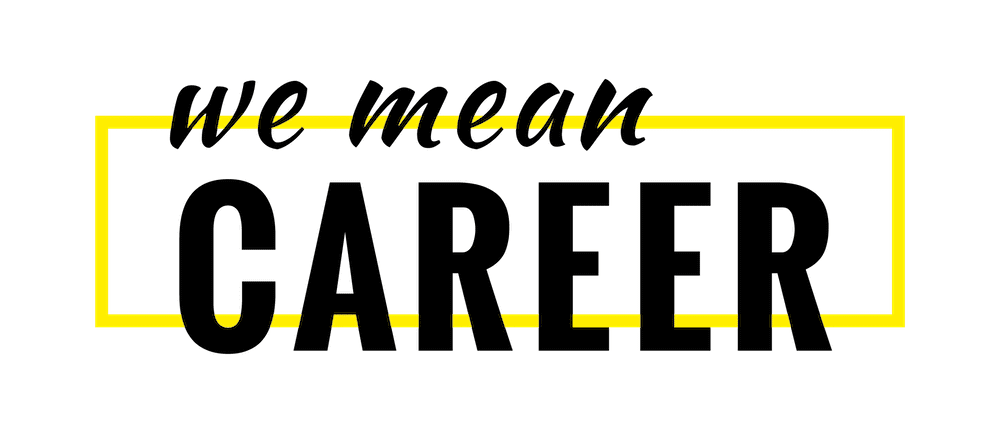EMOTIONAL INTELLIGENCE IN THE WORKPLACE
Often, when evaluating our worth in the workplace or in the job hunt, we focus on the “hard skills”. Maybe you feel valuable because you are certified in Project Management, or maybe it’s because you speak French? Maybe it’s because you are, in fact, an Excel genius (everyone claims to be these days, but you actually are).
But one of the most prized skills to have in the workplace is surprisingly emotional intelligence. Wait, that’s a “soft skill”, right? That is correct, but that doesn’t take away from its importance. According to Forbes, “Emotional intelligence is one of the strongest indicators of success in business.” Interesting, right?

Photo by rawpixel.com
Emotional intelligence is essentially your ability to understand and respond to your own emotions and needs and your ability to understand and respond to the emotions and needs of others. Most people think of emotional intelligence as just your ability to read others, but it’s much more than that. It’s also about how you react to different situations. For example, how do you respond to change?
Attributes of Emotional Intelligence
There are many ways to define emotional intelligence. But, most experts agree that it can be broken down into four main attributes:
-
Self-management
Do you feel like you’re able to control your impulses? If the answer is yes, this could be a sign of strong emotional intelligence. Self-management means being able to manage your emotions in a healthy way, which includes controlling any impulsive feelings or behaviors.
This skill is so useful in the workplace, and in other areas of life. It can help you take initiative when needed, be adaptable to challenging situations and keep commitments you’ve made.
-
Self-awareness
Another trait found in people with high emotional intelligence is a sense of self-awareness. What does this mean? Simply, it means you’re able to recognize your own feelings effectively and understand how they affect your thoughts and actions.
Those with high levels of self-awareness are more likely to be confident in themselves and their abilities. They know their strengths and weaknesses, and they are more likely to be successful.
-
Social awareness
You’ve probably heard about the importance of empathy. But did you know it’s an important aspect of emotional intelligence? Being socially aware and empathizing with others means recognizing the needs of others, as well as picking up on emotional cues easily.
Social awareness is vital in the workplace, as it helps you better understand other people’s emotions and concerns. It also makes you more comfortable socially, especially in groups.
-
Relationship management
The fourth attribute of emotional intelligence is relationship management. Basically, how good are you at developing and maintaining relationships?
People that excel in this area are often much better at building healthy relationships with others. They know how to communicate, work well in a team, and they know how to manage conflict and influence others in social settings.
Many employers nowadays are open to hiring the employee with higher emotional intelligence over the employee who has all of the hard skills but is not empathetic or is difficult to work with. For that reason, it’s important to continually develop your emotional intelligence to succeed.
Examples of Emotional Intelligence in the Workplace
You might be saying to yourself, I am already pretty strong in this area! Or, I spend all day staring at my computer or working independently. This doesn’t concern me.
Contrary to popular belief, Our ability to connect with others isn’t something we only utilize for in-person interactions, and it’s also not something that we learn once and never have to visit again.
Here are some examples of instances when a high level of emotional intelligence would come in handy when:
- working with a difficult co-worker
- working in a team
- disagreeing with a boss
- trying to make a client feel welcome
- asking for or giving help
- bonding with co-workers
- adapting to changes
- taking responsibility for a mistake
Signs of Poor Emotional Intelligence
We’ve now touched on when emotional intelligence might be useful, but how can we identify poor emotional intelligence? How do we know when we need to improve?
1) You are too argumentative at work.
Do you often find yourself in tense situations with your co-workers or your supervisors? Emotional intelligence is equal parts knowing when to be honest and make your feelings known and recognizing when it’s better to just bite your tongue.
Sometimes, one of the best ways to enact change at work isn’t through direct confrontation. Often, it comes from taking a step back and trying to recognize why your co-worker or boss has made a certain decision. From there, you can decide the best course of action, which is oftentimes not an argument at all. Maybe it’s accepting a situation you can’t change. Maybe it’s finding a compromise. Maybe it’s giving the situation time and revisiting it later.
In the end, if you determine none of these options are realistic, tell this person directly but not aggressively. Argumentativeness at work isn’t necessarily bad, but it can be if it’s happening frequently and with a defensive tone.
2) You don’t have many friends at the office.
Do you find it difficult to connect with your co-workers? It’s possible that they are all boring or conniving or have completely different interests, but it’s more possible that maybe you aren’t making much of an effort to connect with others. Not getting along well with co-workers is a red flag to employers that you cannot thrive in certain social situations.
3) You’re sometimes negative.
It’s a Friday night, and you’ve just found out you need to work late. Instead of just accepting it and getting the work done, you spend the whole time pouting and complaining about having to be there. In every job, in every company, in every country, there are instances when we have to work a little extra. Complaining about it, unfortunately, isn’t going to make the situation any better and brings down the mood of everyone around you.
4) You aren’t getting promoted.
There is a myriad reasons that might explain not getting promoted, but one of them is surely a lack of emotional intelligence. Why would an employer want to promote you if you have a hard time meeting new people? Or if you find it difficult to adapt to new rules around the office?
Emotional Intelligence Skills
1. Listening
Listening is the key to emotional intelligence. By listening, you learn more about the other person and, thus, can figure out how to work better together. Listening is not staring at the other person while you formulate your next sentence but rather truly hearing the person speak.
2. Empathizing
Another important facet of emotional intelligence is empathizing with other people. Empathizing is putting yourself in your co-worker’s shoes and wondering, “why might she feel this way?”. Empathizing is also giving someone the benefit of the doubt, as we don’t always understand what everyone else has experienced that might have led to this place.
3. Communicating directly but diplomatically
Passive aggressiveness is, in a way, the antithesis of emotional intelligence. It shows that you a) cannot deal with conflict and b) that you can’t manage your own feelings. While we don’t want to be argumentative at work, we do want to be direct and honest when honesty will enact meaningful change.
It’s also important to pick your battles and decide how you are going to react. Got a co-worker who chews loudly at his desk? Put on your headphones and find your zen. It’s not worth it. Got a co-worker who always interrupts you in meetings? Pull that co-worker aside and let him know how this behavior makes you feel and that it is not okay.
How to improve emotional intelligence
1) Mediate
It might sound silly, but getting in touch with your thoughts and emotions is the best way to get in touch with those of others. Every once in a while, particularly when you are stressed or having a hard time regulating your emotions, take a beat and meditate. Listen to your thoughts. Feel the way your body tenses and relaxes. You can’t control your emotions or thoughts, but you can choose how to react to them.
2) Listen, listen, listen
The next time you find yourself in a difficult interpersonal situation, remind yourself to listen. Even if the person sounds insane. Even if you know they are wrong. Let completely finish their thought before jumping in and encourage them to continue if they cut themselves off. If we feel heard, we often feel understood and more comfortable. Just listen. Sometimes, that person might surprise you. And if they don’t? Then, you can approach the situation confident that you have looked at it from someone else’s point of view.
3) Think before you speak
This one is something we have to learn again and again and again. We get comfortable and forget. Take a millisecond and think before you speak, particularly in high-stress situations. Does what I’m about to say change anything? Will this hurt someone? Could it be interpreted as judgmental? Whiny? Aggressive? Am I saying this because I’m angry?
4) Practice being honest diplomatically
Particularly if you want to be a leader, you’re going to need to have a lot of difficult conversations and to ruffle a lot of feathers to get things done. The key is doing so tactfully. Start by practicing saying the word, “no,” once a day. If that feels difficult, start with, “I’ll think about it,” and work your way up to a firm but polite “no”. Eventually, you’ll learn how to look someone in the eye and say what you think without feeling awkward or too aggressive. It’s a fine line, but, once you find it, you’re golden.
5) Make new friends
Make the first move to making new friendships. Sometimes what holds us back at work is taking that first step. It could be as easy as making a comment about the weather or something more personal like commenting on a co-worker’s recent accomplishment. Making new friends at work is key to your ability to thrive in your company. The more you know about someone, the better you can work together.
6) Practice positivity
It can be hard sometimes, for example, in the dead of winter, to feel cheery going into work. But, sometimes, even if we aren’t feeling so joyful, it’s helpful to fake it. If you feign a little happiness, you might actually end up feeling that way. Try to think of things you have to look forward to, and, if there’s nothing, create something! Make plans to treat yourself to something small, like a new top, a massage, or a brunch date with friends. When you’re positive, people will want to be around you, and you’ll do better at work.
7) Read the book “Emotional Intelligence” by Glen Cummings
Conclusion
Emotional intelligence is something we can look forward to working on for the rest of our careers. When we’re strong in it, not only do we excel at work but in our personal lives as well. It’s a “soft skill,” yes, but one of the most important skills a person can have. Luckily, it’s a skill that doesn’t require a ton of effort to practice, as you can do so in everyday conversations and interactions. With a little self-awareness and patience, you should start to feel a difference in your interpersonal skills right away. Who knows, maybe you’ll get a promotion, too.




